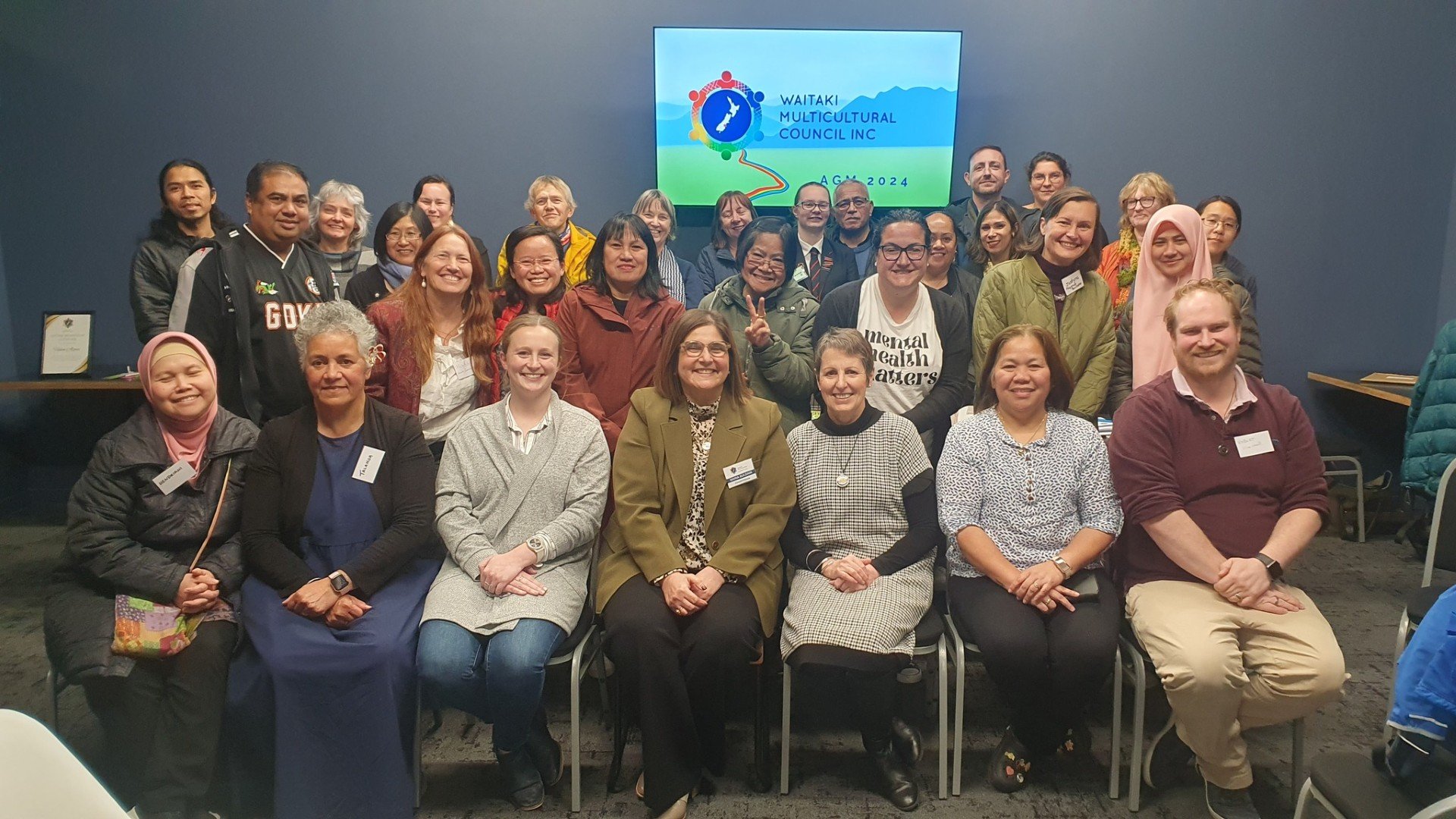
Maddy: This month we are saying thank you to all the volunteers who are part of our committee and help to run different activities. Today’s subject, Hazel Agnew, originally from Scotland, came to New Zealand in 2002. Hazel is a volunteer, helping to co-ordinate the Monthly Book Club.
Please tell us about your journey to New Zealand.
Hazel: Initially went to Dunedin, then Whakatane, then Christchurch and now here.
Whakatane I liked as a place, but I did not like the Mediterranean-type climate. You are sticky all the time and you do not get proper winters. I like the four distinct seasons.
Maddy: Did you come to Dunedin first for the Scottish connection?
Hazel: Partly it was the size, as Dunedin is smaller than other main cities. But also, that was where a job came up that fit my qualifications.
Maddy: So tell us about your line of work.
Hazel: I was working as an intellectual disability nurse — the qualification is not found in many countries, New Zealand, UK and Ireland. I think the Netherlands as well, but I do not speak Dutch. I wanted to get out of my comfort zone and New Zealand seemed to fit the bill in many ways.
Maddy: Certainly distance-wise, that’s for sure. And while the language is the same, you must have experienced some differences?
Hazel: Yes. You have that with any accent, things you pronounce your way. It took a wee while to be able to differentiate between different parts of New Zealand with the accent. Like, Auckland is a bit harsher and it’s softer, almost more Scottish, when you get to the deep South.
Maddy: Did you leave family behind?
Hazel: I am single so I have not got any real ties. In a sense, I was living, latterly, in more remote parts of Scotland anyway. It would take me a day to get further south on public transport, which is no different from you.
Maddy: What was one of your first experiences here that felt particularly Kiwi?
Hazel: I suppose some of the cultural stuff you do as a health worker, starting the day, welcoming, going on to a marae. All that was a bit different. Plus the importance of place and where you come from, which is also important in Scotland too. Scotland has a lot of similarities with its clan structure to the whole setup here with iwi and your links to your ancestral homeland and family. So in many ways that’s actually quite similar.
Maddy: Those are interesting similarities.
Hazel: Yeah, although I had to laugh when I was in Whakatane. One of the Maori support team (half the population in Whakatane is Maori) was on holiday in Scotland and asked directions to Loch Awe, but he pronounced it "ah way" (the te reo way) but it’s pronounced like "or", so he got blank looks.
Maddy: Yes, I can imagine that. How did living in Whakatane compare to living in Dunedin?
Hazel: Quite different — different climate, different size, similar to here. Different natural history, too. In the bush behind Whakatane there were actually kiwi, which is rather nice, and you had tuatara on Whale Island and also on White Island.
I visited White Island on about my third attempt to get there because they were careful about people going over at [volcanic alert] level 2 or above. I found it very interesting, learning our island group is on top of tectonic plates. Though, saying that, there was volcanic activity in Scotland years ago. Edinburgh Castle is on a volcanic plug and the Royal Mile goes downhill from there.
Maddy: I did not know that. The other place you have spent time here was Christchurch.
Hazel: Yes, that was after the quakes — about a year or so after and I was in Christchurch for seven years. It could be quite unsettling after a quake, losing your sense of direction with landmarks being constantly demolished and one-way directions constantly changing for the first two or three years.
Maddy: I bet. So I know, Hazel, that you have quite a strong cultural interest and took part in our diversity-in-art project last year, which was great. Have you found decent access to arts and culture opportunities here?
Hazel: Yeah, it depends where you are. I mean, obviously, if you’re in one of the bigger smokes, there’s more things going on, but there’s quite a bit going on in Oamaru. I am involved in the Oamaru Chorale, I am playing flute (badly) with the youth orchestra, and going along to the Scottish country dancing sessions which are good fun.
Maddy: What have you found most similar to home, being here?
Hazel: I suppose in some ways the geography and the climate is quite similar to Scotland, with the mountains in the west and different climates on different coasts. You also have strong different dialects in different parts of Scotland, like the Viking heritage, the Norse heritage, and Orkney, Shetland and Caithness. And then you have other very, very strong accents in different parts of Scotland, like northeast Scotland — what’s called the Doric. Their dialect is quite distinctive and again would be quite difficult for Kiwis to understand.
Maddy: What about Scottish food?
Hazel: One of the main Scottish foods that I really like, which I can get here fortunately, are oatcakes. I like oatcakes and cheese. I like any type of cheese. If it’s got blue bits in it, even better.












